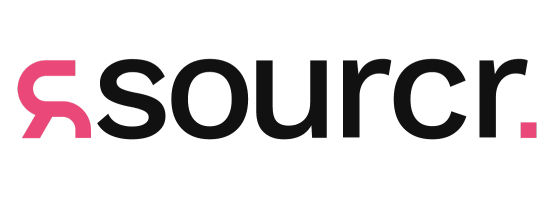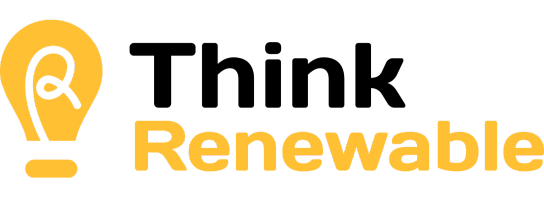Let's talk 02 8320 0683
Emotional Intelligence in the Workplace
What is emotional intelligence & why is it useful to have at work?
We look at the importance of this characteristic and discuss ways you can develop this trait.
What is emotional intelligence? A definition
Sometimes emotions can feel like the Hulk taking over our decision-making skills: irrational and impulsive and we've all been there! But don't worry, emotions aren't always the enemy of reason. In fact, they can be pretty useful. They help us to act, connect with others, and form our own sense of right and wrong.
That's where emotional intelligence comes in - it's like having a supreme power for managing your emotions. Emotional intelligence means being able to recognise and handle your own emotions, as well as the emotions of others. It's made up of a few key skills: being aware of your feelings, using them to help you think and solve problems, and knowing how to control them while helping others do the same.
It's kind of like a ninja skill that involves being aware of your emotions, using them to your advantage (like powering up for a big task), and helping others navigate their own feelings too. And why is emotional intelligence so cool? Because it can give you a major boost in both your personal and professional life! With emotional intelligence, you can communicate better, build stronger relationships, make better decisions, and even boost your overall well-being.
Importance of emotional intelligence in the workplace
It's not just a buzzword – studies have shown that emotional intelligence is a key ingredient in career success, job performance, and even mental health. And guess what? Emotional intelligence can be especially important for certain roles, like human resources and leadership, where communication and conflict resolution are essential. But don't worry – whether you're in a leadership position or not, boosting your emotional intelligence can benefit any job you have.
But here's the best part – emotional intelligence isn't just important for work. It can also have a huge positive impact on your personal life! By understanding and managing your emotions better, you'll have a brighter outlook on life and be able to handle all sorts of situations with greater ease.
Emotional intelligence is like a superpower at work - it helps you navigate the complex world of emotions, both yours and others', to become a real workplace hero. With emotional intelligence, you can guide, help, and even spread happiness to those around you, all while climbing the career ladder. Here are a few simple reasons why emotional intelligence is essential in the workplace:
- With emotional intelligence, you'll be a pro at understanding all types of communication, like spotting when a co-worker is feeling down. You can then swoop in and offer them some empathy before the situation escalates.
- Being in tune with your emotions means you can adjust your behaviour before it becomes a problem for others. Had a rough night? No problem, you can recognise it and adjust your focus to stay positive and productive.
- Understanding other people's emotions makes decision-making and task completion a breeze. By being empathetic and understanding, you can get things done more efficiently.
- Emotional intelligence and leadership skills go together hand in hand. By displaying traits like patience, active listening, positivity, and empathy, you can climb the career ladder and earn that promotion or raise.
- Emotions are contagious, so why not spread some good vibes? By displaying motivation, empathy, responsibility, and teamwork, you can encourage your team to follow your lead and become emotional intelligence champs.
Once you understand why emotional intelligence in the workplace is so important, you can take a look below at some tried and tested techniques as to how to improve yours while you’re at work.
How to improve emotional intelligence in the workplace
While some folks are naturally gifted with emotional intelligence, it's a skill that anyone can improve upon. And when it comes to succeeding at work, emotional intelligence can be a total game-changer.
Think about it: so much of what we do at work relies on our ability to connect with and communicate effectively with our colleagues. That's where emotional intelligence comes in. By honing your skills in self-awareness, self-regulation, social skills, empathy, and motivation, you can become an absolute superstar at work.
Are you ready to become a master of your emotions in the workplace? Emotional intelligence is the key to better communication, stronger relationships, and greater success. Let's look at how you can improve yours:
- Work on self-awareness. One of the coolest things you can do to become more emotionally intelligent at work is to start paying attention to your own feelings. Understanding your emotions is a key part of emotional intelligence, and it all starts with being self-aware. Take a moment to think about how your emotions affect your reactions and decisions. Knowing how you feel can give you some keen insight into why you react the way you do, and help you better understand yourself and others. Don't forget to give yourself credit for your emotional strengths, but also recognise areas where you might need to improve. Maybe you're a great communicator but tend to get annoyed easily. That's okay - understanding your weaknesses is the first step to overcoming them!
- Learn how to self-regulate. Self-regulation is a vital part of emotional intelligence, and you can absolutely get on top of it. With a little practice, you'll be a self-regulation superstar. Imagine yourself adapting easily to changing situations without breaking a sweat. You're a pro at expressing your emotions in healthy ways instead of reacting impulsively. That's what great self-regulation can do for you. You can do this by taking time to release stress and finding an activity you love outside of work, like yoga or hiking. It's essential to have an outlet to let go of any tension. You can also begin to accept that some things are out of your control, choosing instead to focus on how you can respond in a helpful way.
- Work on your social skills. People with high emotional intelligence tend to have strong social skills, so it’s great news that social skills are highly valued in the workplace! By improving your social skills, you can communicate more effectively and create a positive company culture. You'll be able to build strong relationships with your colleagues, communicate your ideas clearly, and take on leadership roles when necessary. By listening actively, you show that you're passionate about your work and willing to collaborate with others to achieve your goals. Ask questions, show interest, and provide feedback to demonstrate that you're fully engaged.
- Display empathy in your interactions. If you want to be the MVP of the emotional intelligence team, it's time to up your empathy game! Empathy isn't just about recognising how others feel - it's about taking that understanding to the next level and responding in a way that shows you truly care. In the workplace, empathy can help you navigate tricky dynamics between colleagues and supervisors. By putting yourself in their shoes, you can gain a better understanding of power dynamics and how they affect interactions and relationships.
- Work on your motivations. If you want to take your emotional intelligence to the next level, start by tapping into your inner drive. When you're intrinsically motivated, you'll feel a sense of purpose and passion that propels you forward. You'll be unstoppable when you're motivated by the joy and fulfillment of your work, not just the external rewards. Instead of just chasing money or fame, you'll find yourself driven to excel because you love what you do. When you're motivated from within, you'll tackle new challenges with gusto and inspire your colleagues to join you in your quest. You'll be a force to be reckoned with, pushing through obstacles and achieving your goals with an infectious enthusiasm that others will find hard to resist.
Now that you know how to improve your emotional intelligence at work, let’s take a closer look at the benefits of using emotional intelligence in the workplace.
What are the benefits of emotional intelligence in the workplace?
When emotional intelligence takes a back seat in the workplace, it can wreak havoc on productivity, performance, and attendance, among other things. As a result, the company culture can crumble, and the bottom line can take a hit. However, when emotional intelligence is prioritised at work, a world of benefits opens up, including the following:
- Positive interactions with those working alongside you. Let's spread some good vibes! At work, you get to connect with a variety of people like your co-workers, supervisors, stakeholders, and even potential customers. With so many emotional interactions happening every day, having a strong emotional intelligence can be the secret sauce for making these interactions upbeat and positive.
- Building meaningful connections. Emotional intelligence isn't just about having positive interactions - it also creates opportunities to build strong connections. By empathising with others and leaving interactions with a positive attitude, you can boost your chances of forming meaningful connections. This isn't just good news for networking and work interactions - it's also great for your personal life!
- Reading and understanding others’ emotions. When it comes to reading people's emotions, there's more than meets the ear! Sure, you can listen to their words, but why stop there? Get ready to play detective and crack the code of tone of voice, facial expressions, gestures, and body language. To become an emotional Sherlock Holmes, start by asking more questions and getting curious about how people feel and what led them there. It's time to put on your curiosity hat and decode the mystery of human emotions!
- Coping with high-pressure situations. Your emotional intelligence can be a superpower in high-pressure situations, like arguments or conflicts. By understanding how emotions work and what they signify, you can turn a tense situation into a positive one by introducing a fun or calming energy. This skill is invaluable for anyone looking to take on a leadership role and create a positive impact on their team. So let's embrace our emotional intelligence and turn tough situations into opportunities for growth and positivity!
- You can level up in your career. One of the best tools in your arsenal to do well in your career is emotional intelligence. Employers are on the lookout for top performers, and having strong emotional intelligence can give you a serious advantage. By tuning in to your emotions and those of others, you can take your career to new heights and unlock exciting new opportunities. So get ready to flex your emotional muscles and watch your career soar to new heights!
High levels of emotional intelligence will improve your working life and the way you behave in the workplace. If you want to learn how you can put your best foot forward in a new role, understanding whether you have a high EQ will help. Contact our team of talented WOWzers and let us work with you on how to present your emotional intelligence at your next interview.
Contact our team to find out more about counter offers and what you can do to leverage your career progression.
Sales Salary Guide 2021
Thank you for contacting us.
We will get back to you as soon as possible.
Please try again later.













